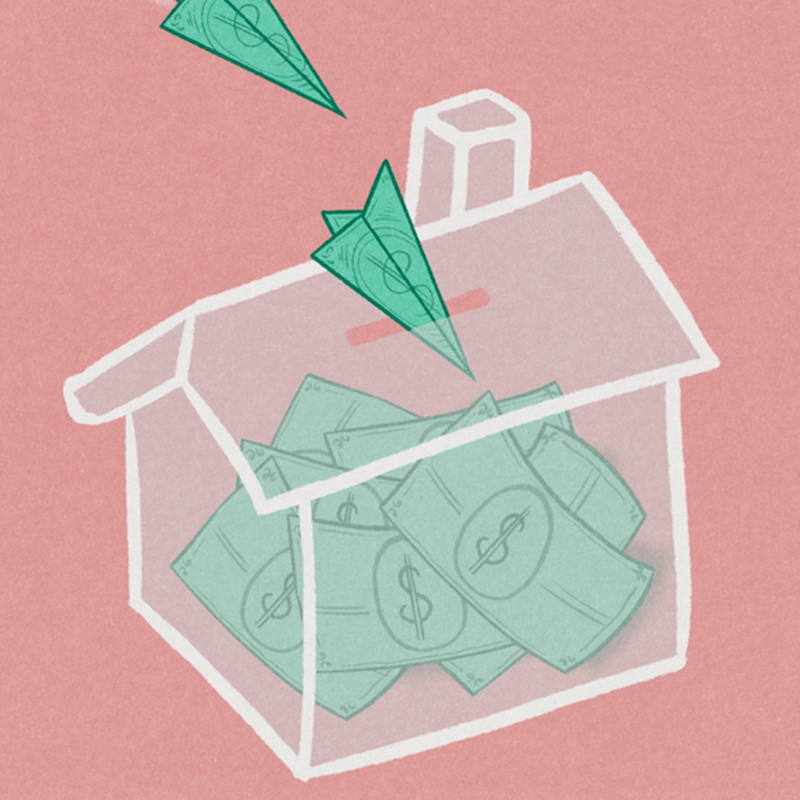Canadian CEOs Made $1.16 Billion in 2021—a New Record for C-suite Salaries

Did you get a raise in 2021? If you’re an executive at one of Canada’s largest companies, chances are you enjoyed a hefty pay bump.
CEOs at the 100 biggest Canadian businesses listed on the Toronto Stock Exchange took home combined pay totalling $1.16 billion in 2021—a 32 per cent increase from the $877 million the year prior, according to an analysis by The Globe and Mail and consulting firm Global Governance Advisors. The median CEO pay package—which includes a base salary, annual bonus and stock awards—rose to $9.13 million in 2021, up 23 per cent from 2020. In comparison, the CEOs saw a 1.4 per cent pay bump from 2019 to 2020 when Covid first hit.
Philip Fayer, the CEO of payment processing company Nuvei, topped the list with a stock-heavy pay package valued at just over $140 million. The second top earner was Patrick Dovigi, CEO of waste management company GFL Environmental, at $43.4 million.
Why CEOs make bank
The reason for the compensation increases was largely due to a strong stock market and corporate gains, bouncing back from the worst days of the pandemic, says David Macdonald, senior economist at the research institute Canadian Centre for Policy Alternatives, or CCPA. Out of the listed companies in the report, the median stock price increase was 30 per cent in the past fiscal year, which was reflected in CEOs bank accounts: The median stock award was worth $4.77 million for execs, up almost nine per cent from 2020.
The analysis found that the primary driver of high CEO pay packages was annual cash bonuses. (Research by the CCPA found that in 2019, only 12 per cent of top-100 CEO pay came in the form of a salary while 82 per cent was in some form of a bonus.) As of 2021, the median CEO bonus came in at $1.95 million, up nearly 38 per cent from 2020. The data also found that the typical CEO got a bonus equal to 170 per cent of their salary.
Macdonald explains that bonuses are determined based on factors like an executive’s performance, their company’s stock price and profits. A company’s compensation committee, comprised of people on the board of directors and potentially executives from other sectors, approve the payout amount.
But Ramy Elitzur, an accounting professor at the Rotman School of Management, questions the way executives are compensated. He says that if you look at the metrics that measure the performance of the company—for example, stock prices—it’s important to ask if CEOs are largely responsible for such financial gains. “Are CEOs just paid well because the entire stock market went up, or are they paid well for something they actually have done?” he says. And when it comes to a CEO’s individual performance evaluation, he is skeptical of companies that use metrics such as leadership or strategic vision. “It’s not measurable and you can fudge it any way you want.”
The growing wage gap between workers and CEOs
The data highlights the disparity between top earners and their staff: The typical CEO made a base salary of $1.11 million last year—almost 20 times what the average salaried Canadian worker made during the same period, according to data from September 2021. Wages for most workers have not kept pace with inflation, which as of May, sits at 7.7 per cent. Executives, on the other hand, are seeing their salaries outpace the rate of inflation. Elitzur sees this as a big problem. “I don’t think any employee is being compensated for inflation,” he says. “Income inequality is a very dangerous thing.”
The pay gap can have a ripple effect. Elitzur says that employees—especially ones who lost their jobs in the early days of the pandemic—will be less inclined to come back to work for companies where execs ensured they kept high-paying roles while laying off workers. “It will come back to haunt corporations,” he says. “People may think, ‘You don’t pay me that well, and when things go south, I’m the first one that is going to suffer. So why do I want to work with you?’” Facing a labour shortage, some businesses are increasing salaries to attract top talent, including CEOs. But now with recession fears looming, massive pay packages prompt concerns over whether such hikes are even sustainable.
While many Canadian CEOs took salary cuts during the pandemic, a 2021 CCPA report found that the CEOs of some companies, such as George Weston Ltd. and Laurentian Bank, benefitted from making bonus adjustments—including altering the weighting of categories in performance evaluations. Often, the report found, the bonuses offset salary cuts. “The pandemic showed that the formulas determining bonuses are easily changed after the fact to preserve CEO pay—even if a company does badly,” says Macdonald.
This shows, according to Macdonald, that even if a recession hits, it doesn’t necessarily mean that a CEO’s pay package will significantly change. “The salary increases may not be as large in a recession, but huge decreases are quite unlikely.” Elitzur thinks that the gap between executive and worker pay will only increase. “I’m less worried about the jump in CEO pay that has already happened,” says Elitzur. “I’m worried about the future as I don’t think executive compensation committees are doing their jobs.”










